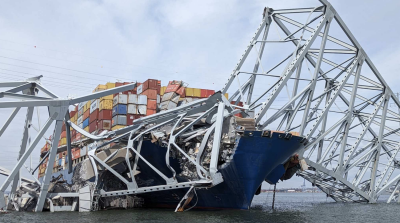Mario Vittone’s Oct. 8 gCaptain essay, “We Won’t Learn Anything: What Sank El Faro and What Didn’t,” offered a concise analysis. First and foremost, a “failure to fairly estimate the encountered peril” led them towards, rather than away from, a known danger. There were reasonable and good alternatives available from the outset to avoid Hurricane Joaquin, but the riskiest course of action was chosen instead. It wasn’t a coincidence that the route they took was also the most direct and usual route to San Juan, Puerto Rico. No matter what else may have subsequently happened, it all started there and then got progressively worse.
According to El Faro’s owners, there was a “sound plan” for avoiding or otherwise dealing with Joaquin. That plan, however, apparently inexplicably failed to take into account a loss of propulsion, which isn’t exactly a rare occurrence in shipping. This despite the fact that the El Faro had a required and approved Safety Management System in place which, in the end, did not help. Vittone aptly refers to this unfounded and unwarranted belief in the plan as the “illusion of control.”
They thought they were in control and were fully committed to the plan and its very risky routing choice that formed its backbone. So much so that it became psychologically impossible to turn around before it was too late, despite mounting evidence that they should. Apparently, no one ashore was willing to suggest or demand a safer course of action.
The El Faro lost power at exactly the wrong place and time, and Joaquin quickly moved in for checkmate. Any plan for a high-stakes situation that includes some version of “this’ll work fine as long as nothing goes wrong” is a plan that you want absolutely nothing to do with.




